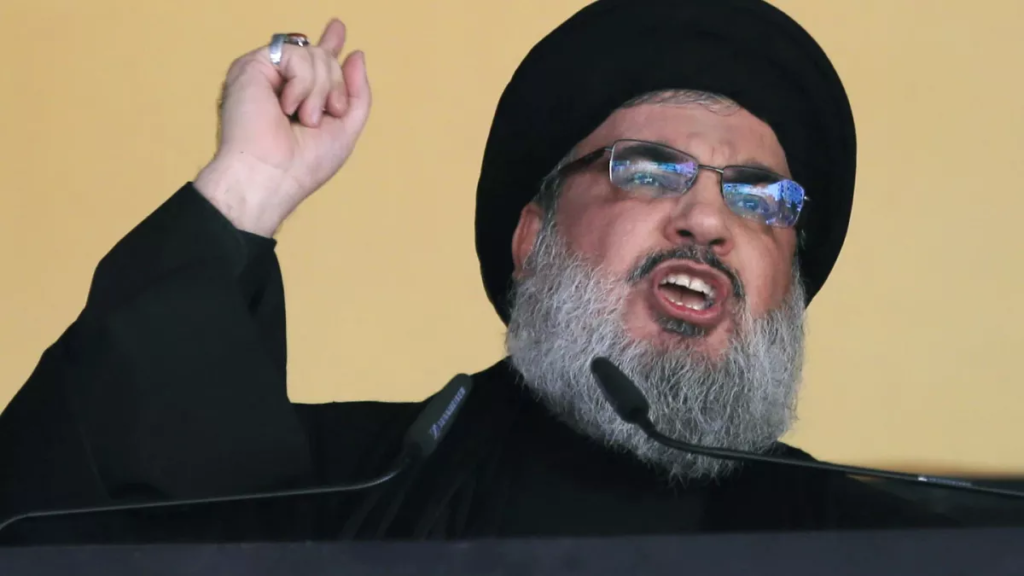
Matthew Miller, the U.S. State Department spokesperson, addressed ongoing tensions at the Israel-Lebanon border. He provided crucial insights about Hezbollah and ceasefire processes during a recent press briefing. Responding to journalists’ inquiries, Miller refuted claims by Lebanon’s Foreign Affairs Minister Abdullah Buhabib. Buhabib had asserted that Hezbollah leader Hassan Nasrallah accepted a ceasefire before being killed by Israel. Miller emphasized that the U.S. had not received such information, stating, “If Nasrallah accepted a ceasefire, this information was not communicated to us.”
Did Nasrallah Accept the Ceasefire?
Lebanese Minister Buhabib claimed on PBS that Nasrallah had accepted a ceasefire. He suggested that the U.S. and France indicated Israeli Prime Minister Benjamin Netanyahu had also approved the ceasefire. However, Miller clarified that the U.S. had not confirmed these claims, asserting, “We did not receive any message indicating that Nasrallah accepted a ceasefire.” He acknowledged that the U.S. engaged in discussions about a ceasefire with Hezbollah but noted that no definitive message regarding an acceptance had been conveyed.
Israeli Strikes: No Intent for Full-Scale War
When asked whether Israel’s attacks on Lebanon would escalate, Miller responded that these actions target only Hezbollah. He insisted that there are no intentions for a “full-scale war.” He explained that Israel’s recent operations focus solely on Hezbollah and that broader military campaigns against Lebanon are not planned. Miller stated, “We see Israel’s strikes as defensive against Hezbollah, a terrorist organization attacking them.”
Moreover, he stressed the need to minimize civilian casualties in regional operations. Addressing concerns over Israel’s strikes on civilian areas in Lebanon, he remarked, “It is essential to take necessary precautions to prevent civilian casualties under international humanitarian law.” This statement reflects the U.S.’s ongoing support for Israel while calling for the protection of civilian populations.
The Aftermath of Nasrallah’s Death
Hassan Nasrallah died during an Israeli airstrike on Beirut on September 27. His death heightened tensions, leading some Lebanese groups to support a ceasefire while others intensified attacks against Israel. Nasrallah’s passing creates a leadership vacuum within Hezbollah, raising speculation about Israel increasing its operations in Lebanon.
Ongoing U.S. Efforts for Ceasefire
According to Miller, the U.S. continues its efforts to achieve a lasting ceasefire and diplomatic solution. While Washington does not engage in direct talks between Hezbollah and Israel, it explores diplomatic channels. So far, these efforts have not yielded concrete results.
In conclusion, Miller expressed hopes that Israel’s attacks remain limited and that diplomatic efforts continue. He stated, “We ultimately seek a ceasefire and diplomatic resolution. In this context, Hezbollah’s pushback from the border is seen as part of the current situation.”
How Will Regional Tensions Evolve?
The escalating tensions between Israel and Hezbollah extend beyond a bilateral issue, impacting regional and international dynamics. Lebanon’s political and economic crises enhance Hezbollah’s power, while Israel’s military operations deepen instability. Despite U.S. mediation efforts, achieving lasting peace in the region appears challenging in the short term.
The fate of a ceasefire between Lebanon and Israel remains uncertain, particularly regarding Hezbollah’s strategy post-Nasrallah.
Source: Milliyet






